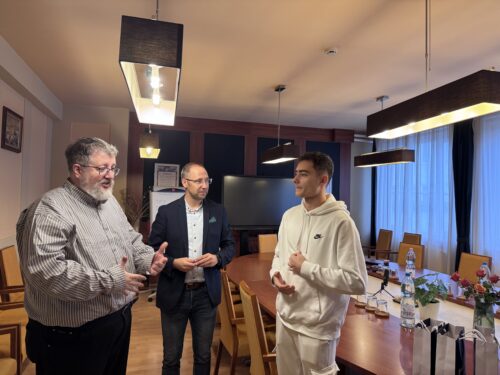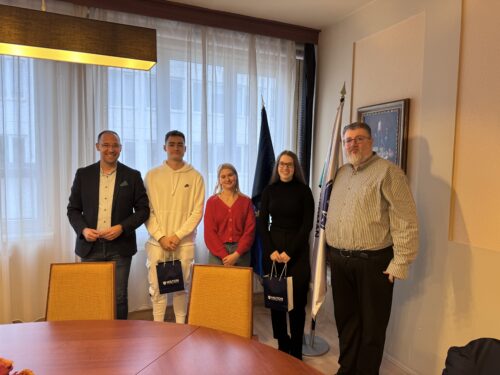In the months of November and December 2024, we organised the testing of the innovative, practice-oriented web-based learning materials developed in the SustainEd (2023-1-HU01-KA220-HED-000165475) Erasmus+ project among students at our University. The students could voluntarily join the testing, during which they could get acquainted with the so-called
WebQuest tasks based on challenges, concrete problem solving and learning about working practices. After completing the tasks, they could present their own ideas in the fields of sustainability, ESG, circular economy models, green food or even product life cycle extension.
WebQuest tasks based on challenges, concrete problem solving and learning about working practices. After completing the tasks, they could present their own ideas in the fields of sustainability, ESG, circular economy models, green food or even product life cycle extension.
The student groups had a few weeks to complete the tasks. They presented their ideas and suggestions in their presentations to their fellow students and lecturers, with whom they were evaluated and discussed. All participants were awarded a certificate for their work.
Among the many valuable ideas presented, the University’s lecturers also awarded a special prize to one of the teams, in which the concrete result of the proposed sustainable business model was produced and presented by the students at the end of their presentation.
The team members were: Anna Vivien Manhertz, Emese Vaskó and László Szalóky, all undergraduate students.
Congratulations!





Híreink